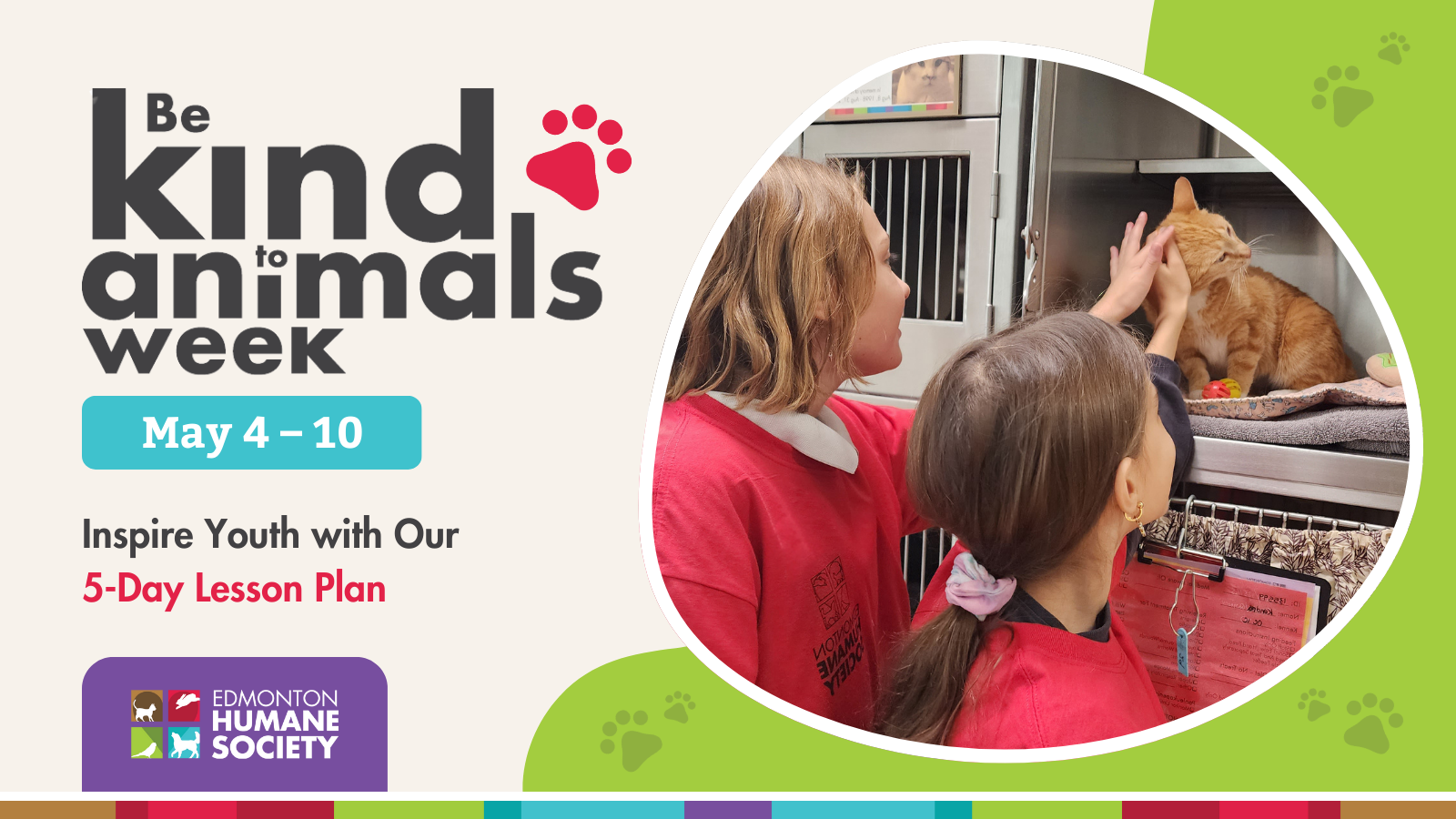- Educators
- Grade 1
- Grade 2
- Grade 3
- Grade 4
- Grade 5
- Grade 6
- Kindergarten

During the first week of May, inspire youth to celebrate the human-animal bond. Our free 5-day lesson plan for grades K-6 is a great way to participate in Be Kind to Animals Week.
Activities range from 15 to 45 minutes in length and focus on promoting empathy and kindness towards companion animals in elementary-age students.
These lesson plans were developed with Alberta basic curriculum ties in mind while presenting information about animal welfare and care. Packages are grade specific and sent at no cost to registered participants.
